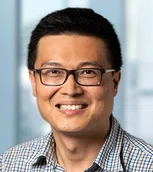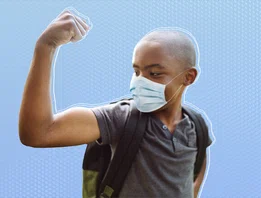


Outcomes Research
Integrating bench-to-bedside and bedside-to-bench research
Integrating bench-to-bedside and bedside-to-bench research
A holistic approach toward investigating the tumor microenvironment using spatial biology and integrating bench-to-bedside and bedside-to-bench research may identify breakthrough cancer therapies while diminishing the healthcare economic burden.
A holistic approach toward investigating the tumor microenvironment using spatial biology and integrating bench-to-bedside and bedside-to-bench research may identify breakthrough cancer therapies while diminishing the healthcare economic burden.
Reverse translation, or a bedside-to-bench research approach is a critical element for achieving scientific breakthroughs which, in turn, can reduce the economic burden related to healthcare. This aspect entails collecting samples from patients during a clinical trial and studying those samples via laboratory tests to shed light on the mechanisms of action and the molecular functions of key proteins. The converse approach of benchtop-to-bedside therapeutic research is also significant as it adds value to the repertoire of approaches to combat diseases.
Interestingly, combining these two approaches in a single institution is a powerful method to expedite the timelines of important medical and scientific breakthroughs, for improving our understanding of the molecular basis of diseases including cancer.

Keith Syson Chan, PhD
Keith Syson Chan, PhD, joined Houston Methodist in December 2022 as professor and Director of Translational Research in the Department of Urology and Program Lead of Innovative Therapeutics in the Dr. Mary and Ron Neal Cancer Center. Chan is focused on expediting the development of early-phase clinical trials and enhancing chemoimmunotherapy responses in bladder and genitourinary cancer. A recipient of the $6 million Established Investigator Recruitment Grant from the Cancer Prevention and Research Institute of Texas (CPRIT), Chan is excited to collaborate with colleagues at Methodist Urology and Neal Cancer Center, by utilizing spatial biology approaches to complete the cycle of bench-to-bedside and bedside-to-bench research at Houston Methodist.
These two aspects of Chan’s research synergize with each other and help in expediting hypothesis-driven research toward clinical translation. Tissue samples collected from the patients enrolled in clinical trials allow Chan and his team to perform robust tests and another round of hypothesis-generating research which can potentially lead to more effective large-scale phase III clinical trials. Chan has a translational research team that aims to bridge basic science discoveries to clinical research. As a cancer biologist, Chan always thought along the lines of inducing programmed cell death to eradicate cancer. However, recently Chan discovered that there is a tremendously understudied cell death-induced biology that can modulate therapeutic response. Chan’s team serendipitously discovered that dying cancer cells release a lot of factors that can modulate residual cancer cells and the immune tumor microenvironment. These determine how the dendritic cells prime an effective T cell response to reduce tumor burden during chemotherapy and immune checkpoint blockade therapy. Chan shared these insights in the Cancer Moonshot Seminar Series organized by the National Cancer Institute in April 2023.
Chan takes a holistic view to dissect how the interactions between cancer, stromal and immune cells within the tumor microenvironment contribute to therapy resistance using single-cell and spatial biology technologies. His team is focused on investigating how cell death plays a role in modulating therapy resistance via promoting compensatory proliferation and immunosuppression.
Our lab has evolved to taking a holistic view where we simultaneously study cancer-fibroblast-immune crosstalks within the tumor microenvironment using single-cell RNA sequencing and spatial biology profiling. Together with the Methodist Systems Biology team led by Dr. Stephen Wong, Professor of Computer Science and Bioengineering in Radiology and John S. Dunn Presidential Distinguished Chair in Biomedical Engineering, this unique approach helps us get a holistic view of the whole tumor. Specifically, we look at fibroblasts, how they secrete collagen and activate signaling in the cancer cells to regulate the metastatic cascade as well as therapeutic responses.”
Keith Syson Chan, PhD
Professor and Director of Translational Research in the Department of Urology and Program Lead of Innovative Therapeutics in the Dr. Mary and Ron Neal Cancer Center at Houston Methodist
According to Chan, “Our lab has evolved to taking a holistic view where we simultaneously study cancer-fibroblast-immune crosstalks within the tumor microenvironment using single-cell RNA sequencing and spatial biology profiling. Together with the Methodist Systems Biology team led by Dr. Stephen Wong, Professor of Computer Science and Bioengineering in Radiology and John S. Dunn Presidential Distinguished Chair in Biomedical Engineering, this unique approach helps us get a holistic view of the whole tumor. Specifically, we look at fibroblasts, how they secrete collagen and activate signaling in the cancer cells to regulate the metastatic cascade as well as therapeutic responses.”
Furthermore, Chan’s team is investigating how different molecular markers that define varying differentiation states can be utilized as prognostic markers in sub-typing bladder cancer into clinically relevant sub-types . As a part of the international consortium of bladder cancer experts, Chan aims to sub-classify bladder cancer and investigate how individual sub-types associate with therapeutic responses. Taken together, Chan’s efforts have the potential to lead to more effective, tailored treatment regimens and precision medicine therapies for bladder cancer patients.
Bladder cancer is an understudied cancer. Yet, about 82,000 new bladder cancer cases and 16,000 bladder cancer deaths are estimated in 2023 according to the American Cancer Society. Moreover, bladder cancer is the fourth most common cancer in men. Chan is eager to collaborate with clinicians to expedite research and investigator-initiated trials to benefit cancer patients, particularly those suffering from bladder and genitourinary cancers. The wealth of vibrant clinical faculties at Neal Cancer Center, together with Chan’s unique approach of integrating bench-to-bedside and bedside-to-bench research may lead to significant improvements in healthcare delivery, innovation, superior decision-making during drug treatment, and the development of novel drug combinations.
For further information on Chan’s work on this topic please see the following papers:
Antonina V Kurtova, Jing Xiao, Qianxing Mo, Senthil Pazhanisamy, Ross Krasnow, Seth P Lerner, Fengju Chen, Terrence T Roh, Erica Lay, Philip Levy Ho, Keith Syson Chan. Blocking PGE2-induced tumour repopulation abrogates bladder cancer chemoresistance. Nature. 2015 Jan 8;517(7533):209-13. doi: 10.1038/nature14034.
K Hayashi, F Nikolos, Y C Lee, A Jain, E Tsouko, H Gao, A Kasabyan, H E Leung, A Osipov, S Y Jung, A V Kurtova, K S Chan. Tipping the immunostimulatory and inhibitory DAMP balance to harness immunogenic cell death. Nat Commun. 2020 Dec 7;11(1):6299. doi: 10.1038/s41467-020-19970-9.
Fotis Nikolos, Kazukuni Hayashi, Xen Ping Hoi, Mark Ellie Alonzo, Qianxing Mo, Armine Kasabyan, Hideki Furuya, Jane Trepel, Dolores Di Vizio, Jlenia Guarnerio, Dan Theodorescu, Charles Rosser, Andrea Apolo, Matthew Galsky, Keith Syson Chan. Cell death-induced immunogenicity enhances chemoimmunotherapeutic response by converting immune-excluded into T-cell inflamed bladder tumors. Nat Commun. 2022 Mar 28;13(1):1487. doi: 10.1038/s41467-022-29026-9.
Yu-Cheng Lee, Hung-Ming Lam, Charles Rosser, Dan Theodorescu, William C Parks, Keith Syson Chan. The dynamic roles of the bladder tumour microenvironment. Nat Rev Urol. 2022 Sep;19(9):515-533. doi: 10.1038/s41585-022-00608-y.
Qianxing Mo, Roger Li, Dennis O Adeegbe, Guang Peng, Keith Syson Chan. Integrative multi-omics analysis of muscle-invasive bladder cancer identifies prognostic biomarkers for frontline chemotherapy and immunotherapy. Commun Biol. 2020 Dec 17;3(1):784. doi: 10.1038/s42003-020-01491-2.
To learn more about laboratory research projects and the Chan research team at Houston Methodist, please visit :
www.research4cure.org
Abanti Chattopadhyay, PhD
September 2023
Related Articles







